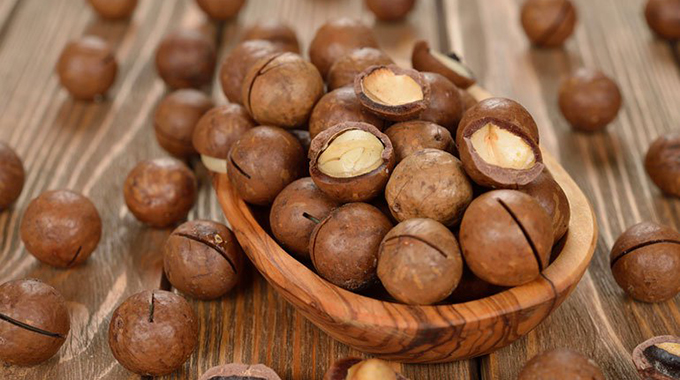Poor prices frustrate small scale macadamia farmers

Martin Kadzere-Senior Business Reporter
Frustrated by poor prices, Zimbabwean small scale macadamia farmers are considering turning to other crops, denting growth prospects of the high value export commodity.
“We rarely break even,” Mr James Maisiri, the secretary general for Macadamia Association of Zimbabwe, an organisation that represents hundreds of smallholder farmers said.
“The problem is that we have few buyers who can easily connive and offer low prices. Lack of adequate funding is also affecting the quality of our nuts because most of the inputs such as fertilisers and chemicals are imported from South Africa.”
In recent years, Zimbabwe witnessed huge appetite for macadamia nuts production in Chimanimani and Chipinge districts in the Manicaland Province, but poor prices are forcing farmers to switch to less technically challenging crops.
Buyers, mainly from China are paying between US$2 and US$3 per kilogramme, depending on quality, far less global average prices ranging from US$12 and US$15 per kg.
A workshop was held with ZimTrade and the Agriculture Marketing Authority “seeking help on marketing issues,” but nothing is yet to materialise due to Covid-19 travel restrictions.
“We can only get competitive prices when we have more buyers,” said Mr Maisiri. Technical advisory services were also critical to improve quality of the crop, he added.
According to Zimtrade, the country’s export promotion agency, the development of the sector is now important as it presents a lucrative alternative to tobacco; whose global demand is under threat from lobbyists seeking to ban smoking.
The production of tobacco, largely grown by small holder farmers is under threat from the Framework Convention of Tobacco Control, which came into force in February 2015.
The framework associates tobacco with detrimental effects on the environment and on health of farmers. The FCTC, however, provides for economically viable alternative activities for tobacco growers and macadamia is seen as an alternative to “golden leaf.”
Should farmers adopt the crop, backed by research and Government support, macadamia can complement the golden leaf’s foreign currency earnings significantly, said Zimtrade.
Export value of macadamia nuts has been growing since the first recorded exports in 2013. According to Trade Map, Zimbabwe exported macadamia nuts worth around US$1,95 million in 2013, a figure which grew to around US$20,7 million in 2019.
The global macadamia market size is expected to reach US$2,95 billion by 2028. It is expected to expand at a compound annual growth rate of 10,7 percent from 2021 to 2028.
With the growing importance of healthy eating, the market is growing at a faster rate, and consumers are increasingly adopting nuts as a healthy snack option and incorporating them into their daily meals. Furthermore, organic macadamia is becoming more popular with the increased demand primarily coming from European countries.
Ariston Holdings, the Zimbabwe Stock Exchange listed entity and Tanganda Tea Company are major producers of macadamia in Zimbabwe.
Ariston’s three macadamia producing estates in Chipinge and Chimanimani make the company the largest producer of the nuts in the country. Tanganda, owned by Meikles Limited, said harvested nuts during the quarter ended June 2021 were 65 percent above the prior year.











Comments